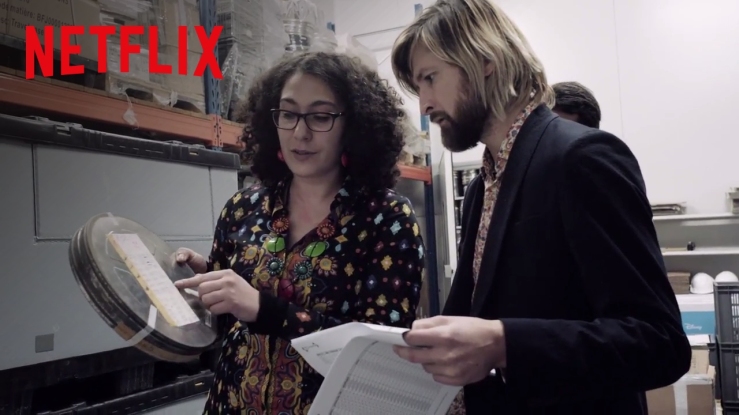It is hardly surprising that Netflix made the decision to pull its slate from Cannes following hostility from the world’s most prestigious film festival. Festival Director Thierry Frémaux eased the competition ban on streaming films only to reinstate it out of the blue. Not only, his way of letting Netflix know was via an interview with an online film magazine, at the same time taking the opportunity to ban selfies on the red carpet.
To expect Netflix to play ball after such haughty treatment was unrealistic, not to mention short-sighted. Cannes prides itself on championing avant-garde cinema yet it fails to recognise that streaming is today’s new wave. In a battle between tradition and innovation, the festival seems reluctant to change.
It is not however unusual for cultural organisations which pride themselves on the unconventional to trip up when it comes to their own backyard. Suddenly that free spirit they are so keen to be associated with becomes a threat. Ironically the 2017 Palme d’Or winner The Square tackles this very subject: a satire on the high-self regard of the art world.
The rise of Netflix has met with much hostility, not only from Cannes and its supporters but also film industry insiders. Whilst you might expect those with vested interests such as TV executives and film distributors to oppose Netflix (even if they claim to be fighting to protect cinema rather than their own finances) it is the film journalists and media in general who have jumped at the chance to find fault with the streaming service. Netflix has been portrayed as the greedy purveyor of trash entertainment out to destroy the big screen experience, one with dodgy algorithms and poor recommendations which invests in innovative cinema only to then go and hide it.
“It doesn’t matter if everyone can watch a movie if no one actually does,” complained one film critic, which would be fair to say if it wasn’t for the fact that Palme d’Or-winning films tend to get a limited theatrical release. Ironically streaming services give Palme d’Or winners a greater lifespan. The Square, for example, is currently available on – you guessed it – Netflix.
Maybe there are valid points within the criticism of Netflix. Surely as a fast-growing company chartering new territory there will be room for improvement. What makes Netflix different is that it is prepared to listen to criticism; it is surprisingly self-aware and not afraid to poke fun at itself.
Rather than congratulate Netflix however on its successful business model and willingness to invest in the industry critics seem all too keen to bash the newcomers simply because they saw an opportunity and took it. It’s almost as if Netflix forgot to ask permission before blind siding everyone with its success.
Only the Financial Times has given Netflix some kind of credit with its neutral but prolific coverage in recent weeks as the streaming platform announced a boom in international subscriptions and a doubling of its European content budget – a timely response to the naysayers.
Whilst hugely ambitious, Netflix is not without a sense of duty; the motto Freedom and Responsibility is key to its working culture. One wonders if Facebook might not have sold off users’ data to all and sundry had it shown a little more integrity in its quest for profit.

Whilst industry insiders will line up to defend the big screen experience (which isn’t necessarily under threat) you would be hard-pressed to find a filmmaker who has worked with Netflix and who is willing to criticise them. Not only does Netflix give them the money and creative control to make the film they want, it offers the capacity to reach a wide audience.
When critics equate Netflix with the death of cinema, they often fail to acknowledge that the films Netflix have funded might not otherwise have been made. Moreover Netflix makes non-mainstream films accessible to a huge audience, including people who can’t afford or don’t have access to cinemas. In this respect, Netflix is democratising the film industry.
Netflix is not the only streaming platform, it is simply the most successful. Other companies are falling over themselves to get in on the act whilst the BBC, ITV and Channel 4 are in talks to create a British streaming service. Yet it is Netflix that attracts all the criticism. Its closest rival Amazon Prime has got off lightly, perhaps due to its support for theatrical releases. Netflix meanwhile has become shorthand for the entire streaming industry.
Streaming services are a low-commitment way of consuming films and TV. They give the consumer choice, which includes not using them at all. There’s no point blaming Netflix for your Netflix addiction when you’re the one in control; not only, it’s remarkably easy to unsubscribe.
Rather than signalling the death of the beloved theatrical experience, streaming simply offers an alternative viewing experience. The two formats are not mutually exclusive, rather they are complimentary. Curzon cinema, for example, simultaneously screens films in theatres and online.
If cinema has survived TV, it should also survive streaming. It is a question of adapting and finding new ways of working. Besides, if you love film, it’s likely you’ll want to consume it wherever and however you can.
Update – December 2018
End-of-year statistics show that not only is cinema attendance on the rise (Big-screen boom: UK cinemas on track for best year since 1971) but also people who consume streaming content go to the cinema more often (Streaming services aren’t killing movie theatres). Why have either/or when you can have both?
